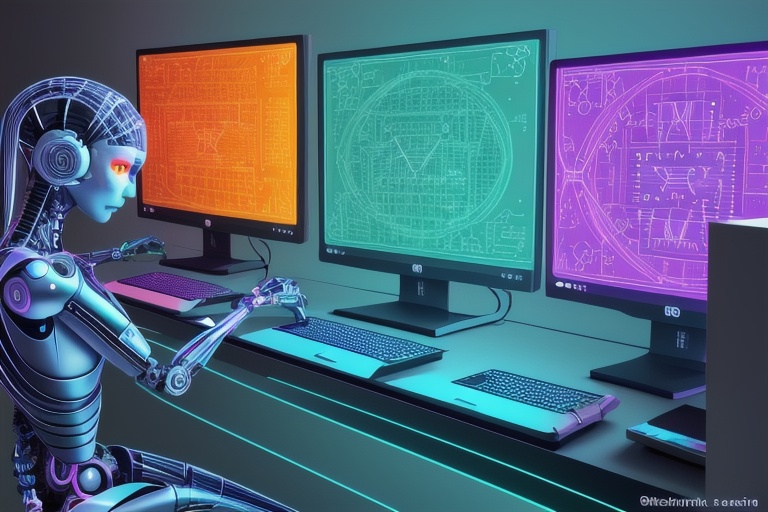Artificial intelligence (AI) has transformed from a science fiction fantasy into a critical component of modern society, altering the way we live and work with rapid advancements. Despite the common association of AI with futuristic robots or superhuman intelligence, the reality is much more grounded and nuanced. This field, with its layered complexities and wide-reaching potential, is reshaping industries and setting the pace for technological progress. Understanding the distinctions between varying forms of AI, from specialized applications to broader, more ambitious goals, is key to grasping its current state and future trajectory.
Artificial intelligence (AI) has transformed from a science fiction fantasy into a critical component of modern society, altering the way we live and work with rapid advancements. Despite the common association of AI with futuristic robots or superhuman intelligence, the reality is much more grounded and nuanced. This field, with its layered complexities and wide-reaching potential, is reshaping industries and setting the pace for technological progress. Understanding the distinctions between varying forms of AI, from specialized applications to broader, more ambitious goals, is key to grasping its current state and future trajectory.
AI Today: Understanding Different Forms
At the core of AI is the concept of machines performing tasks in ways that we consider "smart." This smart behavior manifests in different forms, with the most common being artificial narrow intelligence (ANI). ANI systems excel at specific tasks, whether it's recognizing speech, filtering spam emails, or suggesting the next video to watch on a streaming platform. These systems are tailor-made for particular functions and do not possess the broader understanding or adaptability that humans do.
As we shift our focus to the horizon, the concept of artificial general intelligence (AGI) emerges. AGI represents the pursuit of machines that can comprehend and learn any intellectual task that a human being can. It's a lofty goal that remains largely in the research phase. Current AI systems are nowhere near achieving the versatility and depth of understanding characteristic of AGI. The journey to this kind of intelligence is fraught with both technical challenges and ethical considerations.
AI's Capabilities and Limitations
Today's AI systems have seen remarkable successes in areas such as image and speech recognition, thanks to advances in machine learning and neural networks. These neural networks, inspired by the structure of the human brain, have been fundamental in progressing AI. Deep learning, a subset of machine learning involving layers of these networks, has become a driving force in the field. The recognition of deep learning pioneers with the Turing Prize attests to its profound impact on AI research.
Still, AI systems are not without limitations. They rely heavily on large datasets to learn and improve, necessitating a cycle of constant retraining to stay current. This requirement highlights a critical aspect of AI development: the perpetual need for new data to reflect changing conditions and information. Without this adaptability, AI can falter, giving rise to incorrect answers or outdated responses. Therefore, AI's ability to perform accurately hinges on access to fresh, relevant data and the means to process it effectively.
Furthermore, despite the dominance of neural networks, there's a parallel line of thought in AI research known as symbolic AI. This approach mimics human cognition by utilizing rules and knowledge representation. While data-driven methods have taken the spotlight, it's important to recognize the value that symbolic AI and hybrid models could offer in enhancing AI's problem-solving capabilities.
The Role of Data, Computation, and Algorithms
A trinity of data, computation, and algorithms forms the underpinning of AI development. Advances in computational infrastructure mean that AI models that were once confined to high-powered cloud environments can now operate on personal devices, broadening AI's accessibility and integration into everyday technology. Algorithms, too, undergo consistent refinement, pushing AI's boundaries further.
As the future of AI unfurls, we witness a range of applications that underscore its expansive reach. Beyond computational tasks, AI takes form in neural network-driven chatbots, sophisticated language models, and even in creative domains such as art. However, it's essential not to overlook the significance of simulated data and gaming environments, such as those offered by Minecraft, in training AI systems. These simulations provide invaluable resources for developing models capable of navigating complex, real-world challenges.
Ethical Considerations and Community Engagement
As the capabilities of AI expand, so does its impact on society. With tools like Lensa AI generating art and stirring public discourse, it's evident that AI's evolution demands a thoughtful approach to ethics and guidelines. Open platforms such as The Conversation encourage dialogue among academics and researchers. These exchanges ensure that multiple perspectives inform AI's progression, prioritizing responsible development and the establishment of community standards.
Engaging with a diverse array of voices and fostering collaborative efforts are imperative as we contemplate the ethical implications of AI. Discussions on data privacy, algorithmic bias, and the societal reconfigurations resulting from AI advancements are crucial. By promoting transparency and ethical practices, the AI community can navigate the complexities of a technology that influences nearly every aspect of our lives.
AI's journey is both present-day and forward-reaching, captivated by its promise and the responsibility it entails. Progress in infrastructure, model sophistication, and community involvement paves the way for an AI-enhanced future. Technologies are ever-evolving, highlighting the importance of adaptability and ethical stewardship. As we stand on the precipice of the AI era, it is our collective responsibility to ensure that the power of AI is harnessed thoughtfully, driving societal advancement without compromising our values or well-being.
Information for this article was gathered from the following source.




